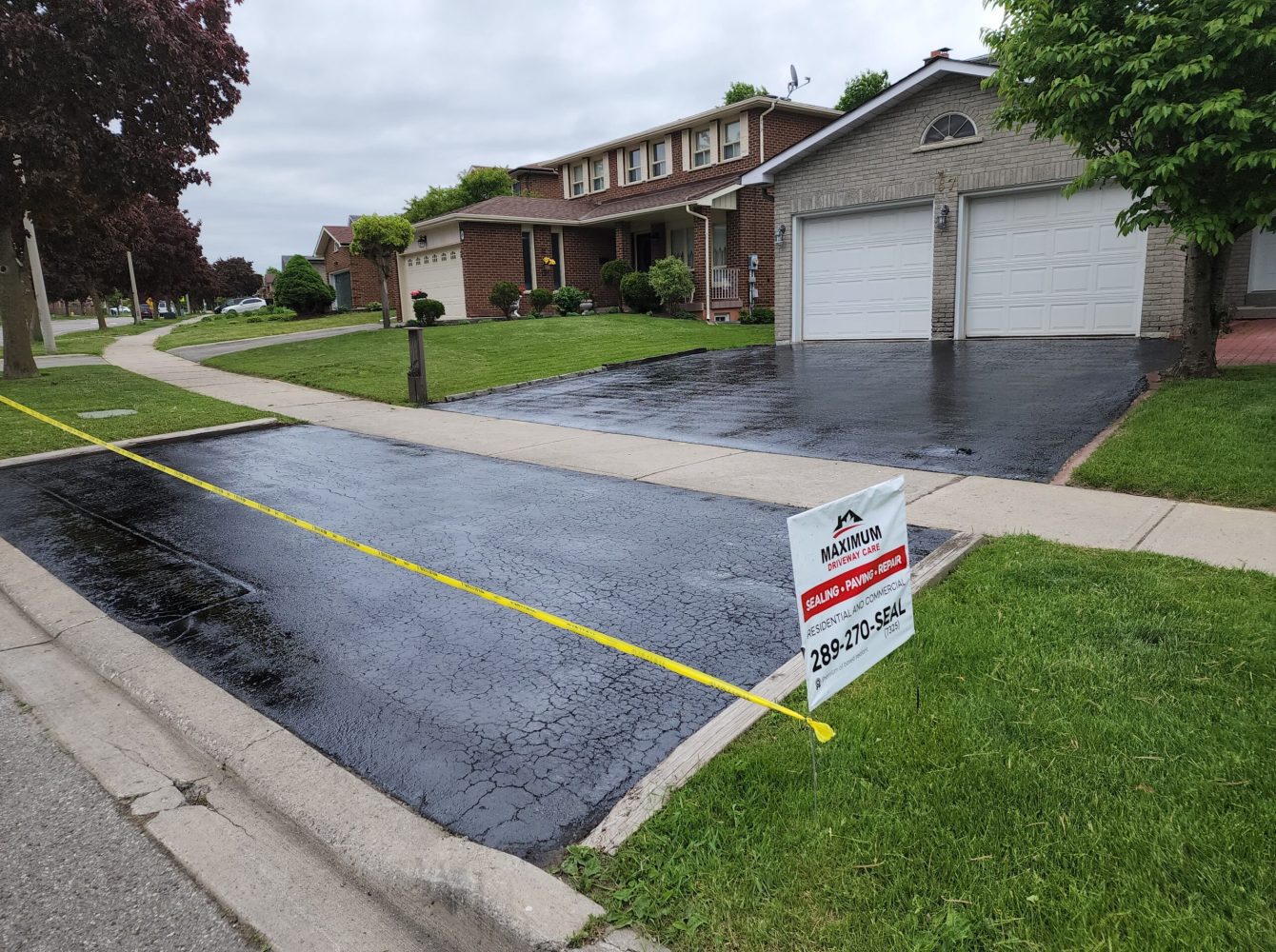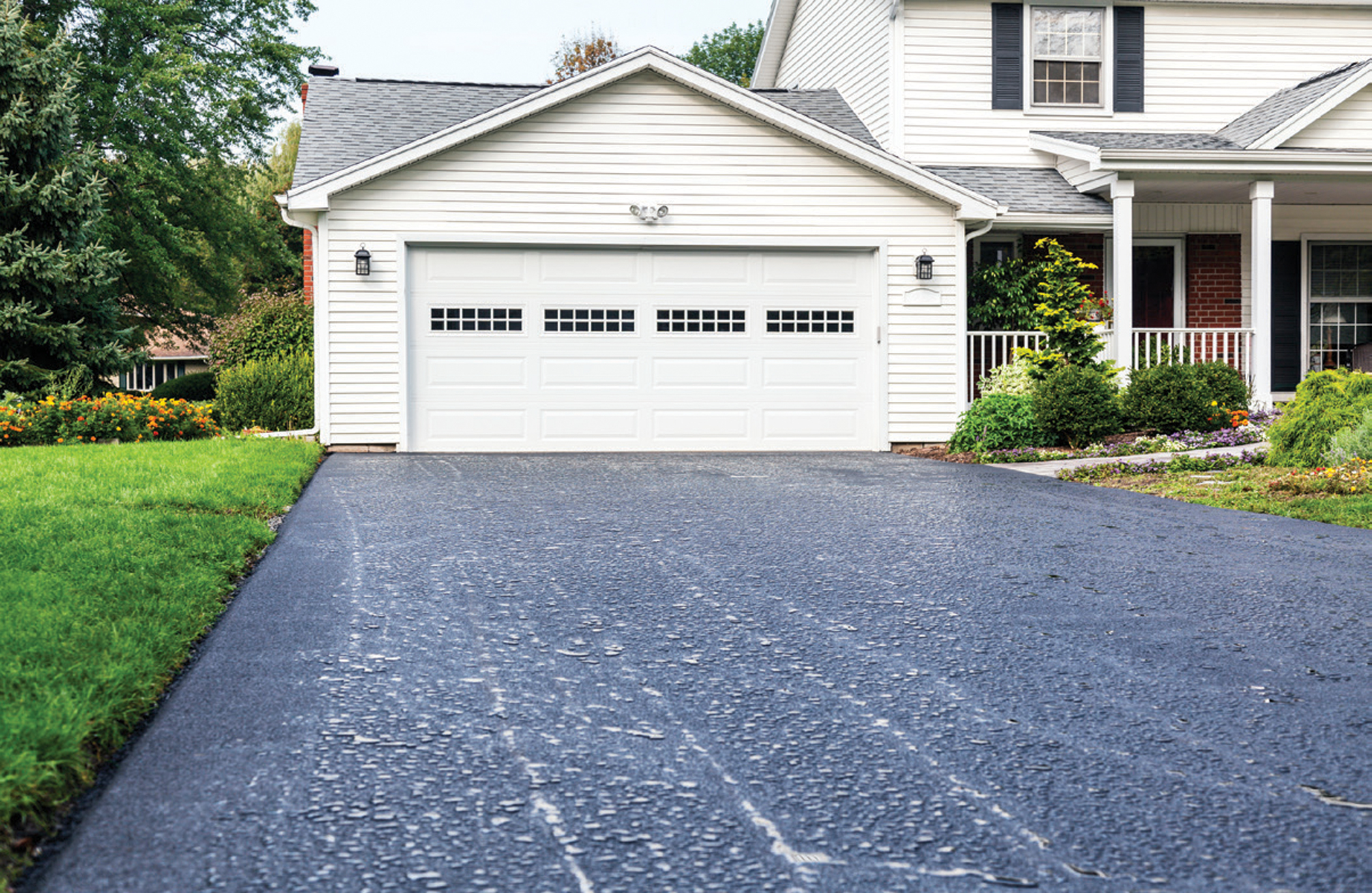Revitalize Your Home with Regrading and Asphalt Sealing Strategies
Revitalize Your Home with Regrading and Asphalt Sealing Strategies
Blog Article
Hot Mix Asphalt: A Lasting Service for Pavement
Warm Mix Asphalt (HMA) has become a leading sustainable selection for sidewalk remedies, supplying a myriad of ingenious modern technologies and environmental benefits. Its capability to lower and reuse products energy usage offers a compelling case for its adoption in roadway building jobs. The long-term performance and durability of HMA make it a favored alternative for facilities growth. As the demand for environment-friendly building and construction methods expands, checking out the nuances of HMA's sustainability can offer valuable insights into the future of sidewalk services.
Environmental Advantages of Hot Mix Asphalt

Furthermore, Hot Mix Asphalt assists to alleviate metropolitan heat island effects. Its dark color soaks up sunlight, decreasing the quantity of warmth showed back right into the atmosphere compared to lighter-colored sidewalks. This can decrease ambient temperature levels in urban areas, lowering the demand for air conditioning and ultimately minimizing power intake.
Furthermore, Warm Mix Asphalt contributes to improved stormwater administration. Its porous nature enables water to charge and penetrate the pavement groundwater materials, lowering drainage and the risk of flooding. These ecological advantages make Warm Mix Asphalt a lasting selection for paving roadways and freeways.
Energy Effectiveness in HMA Manufacturing
Is energy performance a critical variable in the manufacturing of Warm Mix Asphalt (HMA)? Power plays a significant duty in the production of HMA, impacting both price and environmental sustainability. One key element of energy performance in HMA manufacturing is the usage of warm mix asphalt (WMA) technologies.
In addition, improvements in plant innovations have actually resulted in more energy-efficient HMA manufacturing processes. Modern plants are made with functions like recycled asphalt sidewalk (RAP) processing capacities, effective heater systems, and enhanced insulation, all adding to power savings. By enhancing energy usage in HMA manufacturing, the market can decrease its carbon footprint while preserving top quality sidewalk materials. Energy performance is, therefore, a critical consideration in making certain the sustainability of Hot Mix Asphalt manufacturing.
Recyclability of Warm Mix Asphalt
The recyclability of Warm Mix Asphalt (HMA) is a critical element of its sustainability and lasting environmental impact. HMA is among one of the most recycled products in the USA, with over 100 million lots of redeemed asphalt sidewalk (RAP) being recycled annually helpful resources in brand-new sidewalk building. Recycling HMA uses numerous environmental benefits, such as minimizing the demand for virgin products, decreasing power usage during production, and decreasing the amount of waste sent out to garbage dumps.
The process of recycling HMA includes grating the existing sidewalk, squashing it right into smaller pieces, and mixing it with new aggregate and asphalt binder to create a recycled mix. This recycled mix can commonly execute along with or also far better than conventional HMA, while calling for less raw products and generating reduced greenhouse gas exhausts. By including RAP into new pavement projects, road agencies can preserve natural resources, decrease costs, and minimize the ecological footprint of road building and maintenance tasks. On the whole, the recyclability of HMA plays a substantial role in promoting sustainable techniques within the sidewalk market.

Long-Term Performance of HMA
Asphalt sidewalks demonstrate longevity and durability over an extensive period, mirroring the long-lasting performance of Hot Mix Asphalt (HMA) In addition, improvements in HMA technology, such as the usage of polymer-modified binders and warm mix asphalt, have better enhanced the longevity and longevity of HMA sidewalks. By prioritizing top quality construction and upkeep techniques, HMA continues to prove itself as a cost-effective and sustainable option for long-lasting sidewalk infrastructure.

HMA: Toughness and Sustainability
Demonstrating both durability and sustainability, Warm Mix Asphalt (HMA) has become a keystone in the building of long-lasting pavement facilities - regrading. HMA's toughness stems from its capability to stand up to heavy lots, extreme weather, and high traffic volumes, making it find a reliable choice for highways, highways, and airport terminal runways. The structure of HMA, which typically consists of accumulations, binder, and filler, plays a vital role in improving its long life and resistance to tear and put on
Moreover, HMA's sustainability hinges on its recyclability and energy-efficient manufacturing process. The capability to recycle redeemed asphalt sidewalk (RAP) in new HMA combinations decreases the need for virgin products and reduces the environmental influence of sidewalk building and maintenance. Furthermore, the energy efficiency of generating HMA depends on its lower mixing temperature levels contrasted to various other sidewalk materials, causing lowered energy consumption and greenhouse gas discharges.
Final Thought
In verdict, hot mix asphalt (HMA) provides a sustainable solution for sidewalk with its ecologically friendly qualities. HMA's recyclability, energy efficiency in manufacturing, and long-lasting sturdiness make it an environmentally friendly choice for roadway construction.
HMA is one of the most recycled materials in the United States, with over 100 million bunches of recovered asphalt pavement (RAP) being recycled every year in new sidewalk construction.The process of reusing HMA includes crushing the existing pavement, squashing it into smaller sized pieces, and blending it with new her latest blog accumulation and asphalt binder to create a recycled mix.Asphalt sidewalks demonstrate sturdiness and resilience over a prolonged period, showing the lasting performance of Hot Mix Asphalt (HMA) Additionally, improvements in HMA technology, such as the usage of polymer-modified binders and cozy mix asphalt, have better enhanced the sturdiness and longevity of HMA pavements. The capacity to reuse recovered asphalt sidewalk (RAP) in new HMA blends reduces the demand for virgin products and minimizes the environmental influence of sidewalk building and maintenance.
Report this page